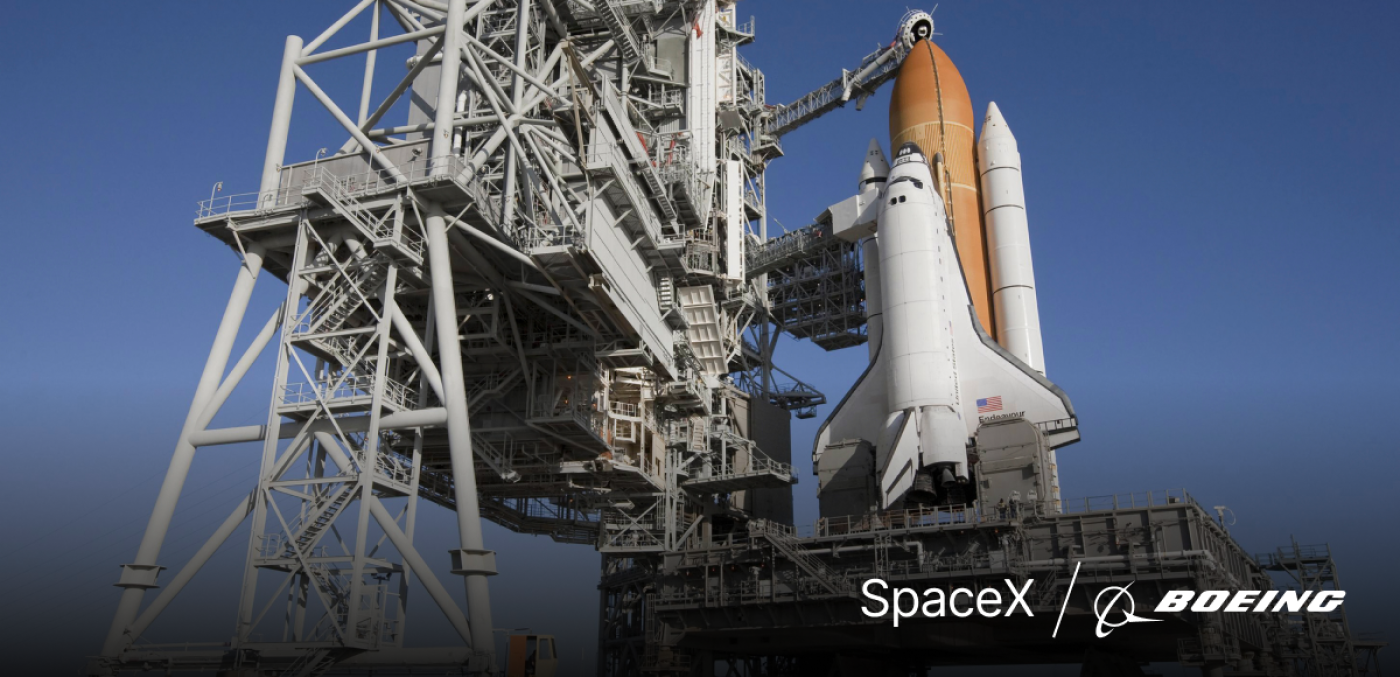For decades, the space industry has been dominated by aeronautic stalwarts like Boeing, whose early work with the government included developing the Dyna-Soar crewed orbiting spacecraft in 1959.6 Shortly thereafter, Boeing — which became a publicly traded company in 19627 — extended its hands into a wide range of other space-related activities, such as contracting with NASA to build Lunar Orbiters in the 1960s to photograph the moon, along with helping to develop Saturn V modules that sent the first Apollo astronauts to the moon.8
However, a new(er) space race entrant founded by Elon Musk in 2002,9 SpaceX, has reshaped the landscape. By designing reusable launch systems and showing that space exploration can be more affordable compared to the past, SpaceX has become the fastest growing space company worldwide.10
Yet, SpaceX remains a private company, with no apparent plans to go public. Nonetheless, Musk recently stated SpaceX could potentially spin off its Starlink satellite internet division into a public offering at some point.11
Meanwhile, both SpaceX and Boeing have enjoyed significant valuation growth over the years,12 despite taking different paths. But, despite being a much younger company, the data shows that SpaceX surpassed Boeing's peak market cap in late 2024.13, 14
Launching at different trajectories
Despite SpaceX garnering much attention, legacy companies like Boeing continue to play a major role in the space industry.
For example, both Boeing and SpaceX were selected by NASA in 2014 to send crews to the International Space Station (ISS), as part of NASA's Commercial Crew Program, a public-private partnership.15 For these missions, Boeing developed its Starliner spacecraft to be reusable up to 10 times.16 Granted, Starliner has been experiencing issues, which infamously led to two astronauts extending their 2024 International Space Station mission for much longer than planned,17 before SpaceX's competing Crew Dragon18 returned the astronauts to Earth several months later.19
But while publicly traded Boeing and privately owned SpaceX directly compete in areas like this, the two companies diverge in many areas, such as with commercial airplane manufacturing being a core part of Boeing's business, alongside other areas like defense manufacturing, while Boeing develops things like fighter jets and missile systems.20
SpaceX says its goal is to make humanity multiplanetary, such as by conducting missions to Mars.21 However, it's currently Starlink that generates the most revenue for SpaceX.22 Also, while space exploration is a big part of what SpaceX focuses on, it has also been winning defense contracts, such as for satellite launches23 and for Starlink service.24
These aren’t the only major companies competing in the aerospace and defense (A&D) industry, but they do occupy a narrow niche of enterprises capable of building spacecraft. From an investment standpoint, though, they could potentially compete for funding with some other startups, such as Loft Orbital.
Launched in 2017, Loft Orbital offers a space-infrastructure-as-a-service model to companies, governments, and other types of organizations.25 Loft Orbital partners with companies like SpaceX to use their launch services, and then Loft operates the launched satellites on behalf of its clients.26
Comparing market performance
Boeing went public 40 years before SpaceX was even founded,27 so Boeing has a much longer track record of market performance. However, SpaceX has quickly grown to become larger than Boeing in terms of valuation.28, 29
Specifically, SpaceX's valuation has jumped more than 10 times over the last five years. After SpaceX reported fundraising in May 2020 that valued the company at around $36 billion,30 the company made some big leaps forward. For example, about a year later in 2021, subsequent fundraising pushed SpaceX's valuation up to around $74 billion,31 followed by a leap to around $125 billion from 2022 financing.32 Most recently, in December 2024, a tender offer for SpaceX shares from the company and certain investors led to the company being valued at $350 billion,33 which is more than $100 billion higher than Boeing's peak valuation that came in 2019.34
SpaceX's Forge Price™ suggests an even higher valuation that rose to $446 billion in February 2025, which is around where it sits as of October 2025, following a little volatility.35 Forge Price is a derived, indicative price, calculated daily for hundreds of pre-IPO venture-backed late-stage companies.
In comparison, Boeing first reached a valuation of over $100 billion in 2013 and saw a big run-up in 2017 through early 2019, when its valuation peaked at almost $250 billion.36 However, issues such as (flight) crashes and the subsequent grounding of Boeing's 737 Max planes,37 along with travel slowdown during the pandemic,38 caused the stock to dip significantly, bringing the company's valuation below $100 billion temporarily. Over the past few years, though, Boeing has recovered somewhat, with its valuation getting back to around $160 billion currently.39
Still, when directly comparing the two companies, SpaceX has seen faster growth in recent years, with its stock growing about 213% since the start of 202340 versus growth of around 8% in Boeing's stock price over that period.41
Forge + Yahoo Finance data: A new lens on public vs. private stocks
Thanks to the recently announced partnership between Forge and Yahoo Finance, investors can now closely monitor real-time private company prices like SpaceX's Forge Price compared to other space and aeronautics competitors in the public market like Boeing. These side-by-side comparisons may help investors spotlight changes (i.e. valuation changes, share price changes, etc.) that might occur as both companies navigate potential changes to government spending,42 regulations43 and overall economic shifts that might occur.
What's next for SpaceX vs. Boeing?
The future of SpaceX and Boeing depends on an array of variables, including what happens with government spending. Potential budget cuts at NASA, for example, could mean decreased funding for areas like International Space Station missions that these companies are deeply involved in.44 However, funding could also go toward new areas that help these companies, but much depends on what will potentially happen politically in the coming months and years.45
Relatedly, Boeing has found itself somewhat in the crosshairs of this year's trade wars, although the company has resumed airplane deliveries to China.46 The company now on track to reach its highest number of annual deliveries since 2018, in part because of the Federal Aviation Administration (FAA) raising the production cap on 737 Max planes.47
The long-term impact of Musk leaving his role as the head of the Department of Government Efficiency (DOGE) also remains an open question.48 While much attention has been on Musk returning more focus to Tesla, it's possible that this move could also affect SpaceX.49
For now, investors interested in buying SpaceX stock, while it remains a private company should review how to invest in SpaceX pre-IPO. Those looking to buy shares of SpaceX, or other A&D companies, should also read Forge’s buyer’s guide to investing in private market shares.
Finally, if you’re ready to start trading, you can create an account today to buy and sell shares.




